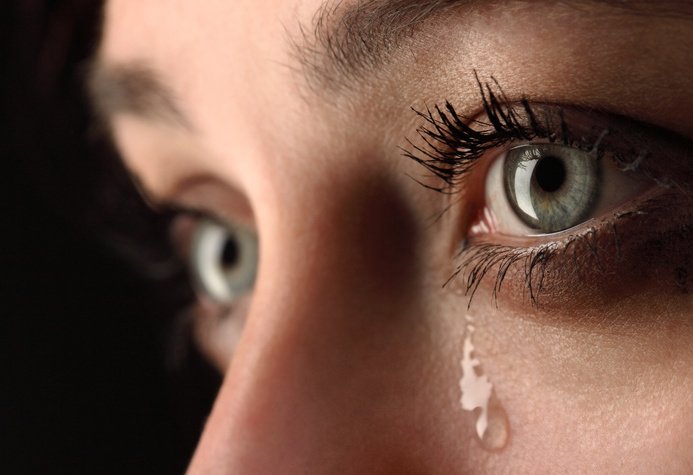Friend, “You know what they say. The best thing when you lose one is to go find another. “
Bereaved Man, “The best way is to go through it, before you even look for another.”
The friend meaning well, has given advice that echoes the attitudes and beliefs around the relief of grief in our culture. “Get over it” “Get busy” “Get your mind off it” “Its time to get moving on.” “You’ll get another one.” The “get” might be more helpful as “let”. Allowing, we let ourselves honor the course of our grief in its own time…as a noted physician’s prescription for the healing of addiction and the brain, states, “allow for the tincture of time.” One never “gets over” grief and loss. The loss of another person, valued circumstance or possession is something woven into the story of each of us. The brain reconciles loss with “piecemeal” memories that are felt and reconciled in personal meaning….in pieces. This does not occur at once, or may not be felt in tandem with the time of the death or loss. And yet, we in the west insist on getting over that which we all share all our lives, loss.
Bernie Siegel M.D., Yale Cancer Surgeon, reports, “The unseen stressor in all troubled relationships is often incomplete grief and mourning.”
John Bradshaw, author, and lecturer on addiction states, “Living with incomplete grief is like swimming while holding an inflated beach ball under the water.”
Virginia Satir, noted family systems therapist, wrote, “It’s like constantly holding a swinging kitchen screen door against a pack of starving dogs.”
We do not give “good grief” in our culture and must begin to learn the requisites to develop pro-grief relationships that allow for healthy mourning, free blocked grief and hold space and accepting attention for those times that “more shall be revealed”, when un-reconciled grief emerges suddenly.
Any defense can be utilized to minimize or deny our grief and thus invite the use of substances or exacerbate depression and other mental and emotional disorders, emerge in various physical symptoms and illnesses. Bernie Siegel, in the 1980’s, began exploring the effects of unresolved grief, mind body connection and its part in the development of cancer and other diseases. So what can we as people with the disease of addiction, do to heal our grief, live healthier lives, as well as to maintain remission of symptoms of addiction and prevent relapse?
We can begin with acceptance of the process of grief. We can learn the normal symptoms and changes that we can expect. There are ways to integrate and give meaning to our losses. We can learn these and incorporate them into our lives and our recovery.
This information can be found in books by: Elizabeth Kubler-Ross, psychiatrist and author of the groundbreaking book, On Death and Dying. In this book she describes the stages and cycles of grief. Stephen Levine, author of Who Dies? and Healing Into Life and Death. Bernie Siegel M.D., author of Love Medicine and Miracles. He pioneered the relationship between cancer and other diseases, and unexpressed grief. John James, The Grief Recovery Handbook.He is also founder of the Grief Recovery Institute. He has been a popular speaker at recovery related conferences in the past. Another book, often given as a gift, is How to Survive the Loss of a Loved One, by Diane Isaacs PhD.
The 12 Steps and attendance at meetings are certain sources of support for sobriety; living with life on life’s terms… and this includes loss. We are not only reminded of our primary purpose of recovery but also the principles we practice in ALL of our affairs. These are tools for healing. Loss is a call for healing. A grief and loss inventory can help us to acknowledge our losses, remind us of anniversaries, and normalize the feelings and symptoms of grief, while we give meaning to these same losses and reinvest our emotional energy to get on with life.
There are online sites that offer support through blogs and online groups for grieving. Hospitals have educational and support groups that address bereavement. Certainly, clergy and churches offer support and counseling. Rituals to honor those who have died are helpful. Local hospices offer support groups for family or friends of the dying, or those who have died in the past. This last suggestion had been most helpful for this author.
“Meeting with others in bereavement normalized my feelings and confusion, not unlike what AA and other 12 Step groups did for my addiction. When my father died, this exacerbated other deaths and losses. I did not only grieve the loss of him and others, but also hope, time, dreams unmet or lost in my illness. Addiction does not lend to healthy grieving. I was overwhelmed. Unfortunately, my friends in AA came from the same limited nurturing and ill informed histories and families as I. They began to repeat what others who did not relate to addiction said to them about their active substance abuse, to my feelings of grief, “control it, get over it, get over yourself, just let it go, focus on others, get busy.” Ironically, by attending grief groups, I used the same model of healing that was and is so effective in maintaining remission from active addiction…like minded people supporting and guiding others with the same problem.”
I hesitate to use the word “problem”. Loss is part of living. Grief and bereavement is the normal and healthy response to healing from loss. Calling it a “problem’ is akin to blaming an addict for their disease and expecting them to “get over it”.


Franklin White says:
I like the idea of motivating people to practice healthy grieving. My wife just lost a friend to an accident. I’ll help her grieve healthily so that she doesn’t end up doing something that could harm her.
http://www.treatwithcare.com/drug-death-grief-counseling/